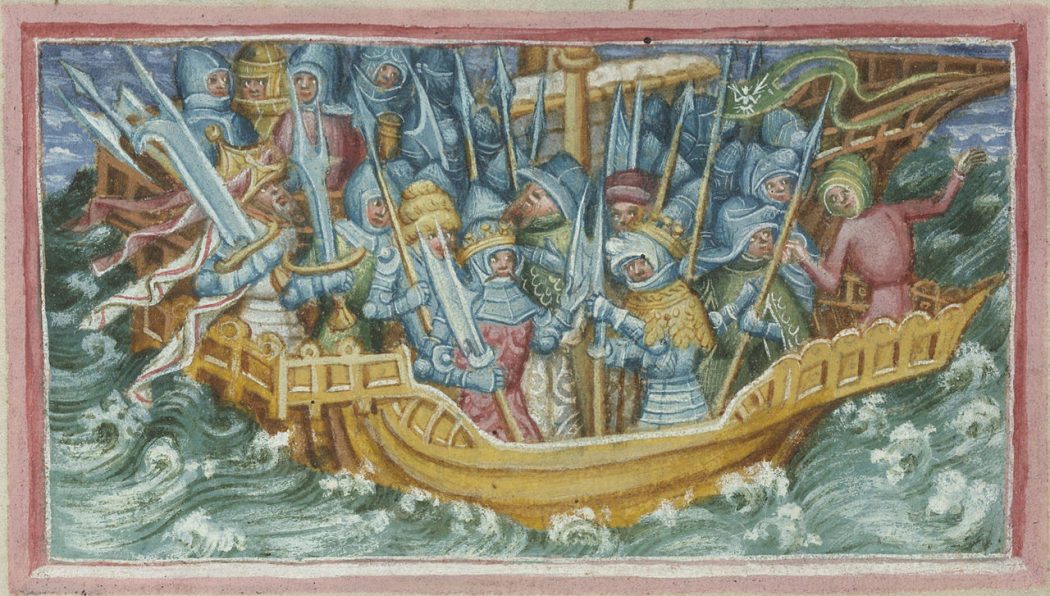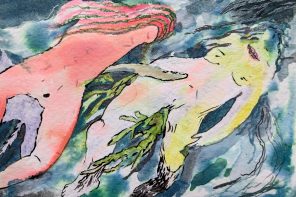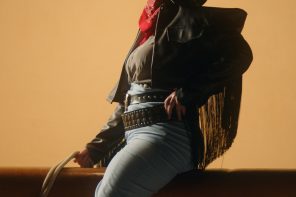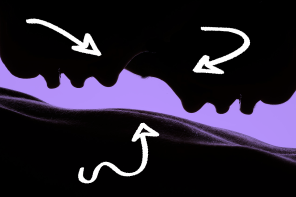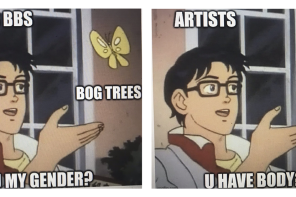Audio transcription:
Historical Anecdotes: Ivar the Boneless (Ívarr hinn Beinlausi) was a 9th century Viking leader who is best known for leading, alongside his brothers, a large united army of Dane, Norwegian, and Swede tribes, known in Anglo-Saxon sources as the “Great Heathen Army.” They conquered large portions of the English kingdoms, ultimately invading Ireland. The meaning of Ivar’s “bonelessness” is debated among scholars; some say it might mean he was very tall, some allude he was impotent (he had no wife or heir). Others debate that he might have had some sort of a disability – that he was legless, or maybe had brittle bone disease.
This is a somatic and spiritual reimagining of Ivar, within our collective cyclical temporal queer minds…
The feeling of mud on Ivar’s feet was one of his favorites. When he was still a small child, the most thrilling sensation was the touch of water and earth on his thin skin. His mother said that if you listened to the tides, you could hear the nine daughters of Rán and Ægir, splashing their bodies against one another, singing for you to join them. Many warriors feared them, but because he’d heard their song since childhood, Ivar wasn’t afraid. The men often laughed at his shattered bones and small figure, but Ivar knew what his body enabled him to do. Loki was also small compared to the other gods, and like Ivar, was prone to the natural magic of the worlds.
Ivar lay down on his back, feeling the soft turned passionate touch of Ubba on his neck from the day before. He recalled the spring festivities back home. Ubba had worn a shield-maiden’s armor in honour of the valkyries, and Ivar’s face had been painted in priests’ colours. At the great temple of Uppsala, they had practiced the sacred conception ritual of the mythical horse Sleipnir. Sleipnir was the offspring of the great stallion Svaðilfari and Loki, who had taken the form of a mare. The fiery paint on Ivar’s face echoing Loki’s flames, he rode Ubba, large hands holding his hips, carefully but firmly pressing skin against skin, bones against bones.
People called them ergi, unmanly and passive, but Ivar knew that they did not understand that being ergi was a way of sensing the world. The fact that he was ergi enabled him to access his mother’s magic, seiðr, the ancient practice of viking women studied by the Sámi people of the north. Even Odin, the allfather, was accused by Loki of practicing women’s magic, yet he still sacrificed his eye for the wisdoms of the earths.
Now he was sitting in the mud, just like years ago as a child, but on a coast far from home. The mud of England was smoother, richer in a way. The future tellers of the past will probably think that Ivar and his brothers murdered King Ælla to avenge the execution of their father. But Daddy was always a brute – he would never be a reason for any of his brothers, let alone himself, to go into battle. They pursued their skirmish because Ivar was called upon by the ancient forces of the sheverse. Ælla was a tyrant who enforced what he called “Christian mercy,” but this land of Christ had not always been peopled with believers in this false, manly, deity.
Ivar could feel within the sea, at the tip of his fragile bones, the waves of different worlds, other spirits, the ancestors of this earth. He lay his ears to the water, trying to feel Blóðughadda’s hair in the water’s foam, or the cool breath of Kólga. Instead, he heard different tunes; beautiful selkies, seal-people with thick and ravishing skin, sang for him. Sensations of memories of magic islands filled with fairies engulfed him when he tasted the salty sea. And the earth itself was humming with the deep visceral music of ancient goddesses who were being forgotten by the people.
He called upon Ubba, who’s eyes mirrored the horizon, and asked him to help him get into the sea. Ivar held Ubba’s shoulders as he lifted him, guiding him deeper into these strange tides. He filled his lungs with air and put his head under the salty water. His mother was a völva, and used her vulvatic sight to march through the waves of human time, and foresee the future. Ivar had studied these powers as well; she’d taught him to slip his body through the texture of his human thought. His body thrust itself into an ecstatic trance, and he held on to Ubba’s body as his bones heard the creatures beyond Midgard, the human world. As his consciousness filled with the cold of his body, Ivar delved into the mind of a much larger, boneless creature.
It was Jörmungandr, the great serpent that surrounds the world, and one of Loki’ children. His large eyes glimmered. Eating his own tail to the depths of the universe, this noble beast knew all the earth’s timelines and lives. Boneless kin, Ivar called upon him. The snake hissed through Ivar’s broken body, shaking his voice through his bones. Let me take you to the edges of magic’s story. Let me show you visions of times only we boneless kin can comprehend.
And so Ivar rode within the serpent’s skin and through his eyes, into the rising tides of sea magic. Ivar felt the sound of the Northern drums echoing across the wild animals of the sea. In terror, he saw the shackled people who would be taken across the Kalunga Line, into the western realm of death and suffering. Then the reckless joy of future seafarers from the west filled his mind, and the depths of Tiamat, the bringer of chaos, quickly replaced it, followed by the sight of the harvests bestowed by the orca Repun Kamuy. And so Jörmungandr the world serpent took him to the edges of the earth, where the androgynous spirit Ayida-Weddo holds the skies, and the rainbow snake sings the songlines of dreams – dreams of a future that will fill the world with water, and the great boneless beasts of old will once again rule the tides. Clutching Jörmungandr’s skin, Ivar came. He let Ubba carry him back to the shore, to the sweet feeling of mud on his legs.
Text and reading by Atalia Israeli Nevo
Header image: Robert Pygot/John Lydgate, Offa At Sea, Hyngwar detail in Folio 47, Metrical Lives of Saints Edmund and Fremund (c. 1434-1439)
Atalia Israeli Nevo is a cultural anthropologist, performance artist, and political pervert from Israel/Palestine. She is a member of the film queer collective Qaveret, and co-curator of the queer porn festival Hairy Legs. She is an expert on cisgender identity, a primates sympathizer, and a dreamer of runes, with a tad of decolonization.
Instagram page / Academia Page

